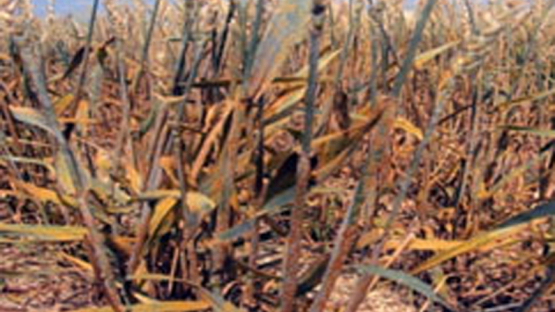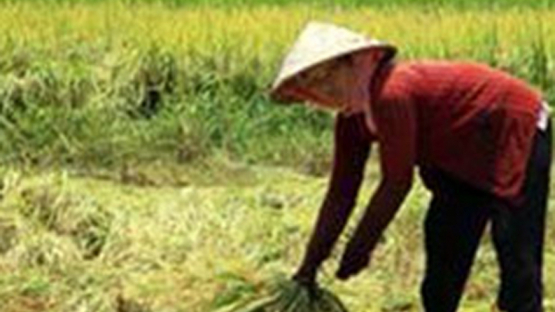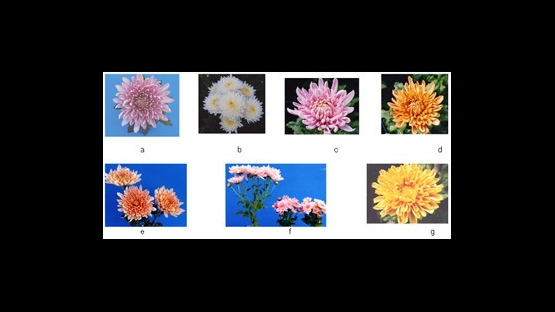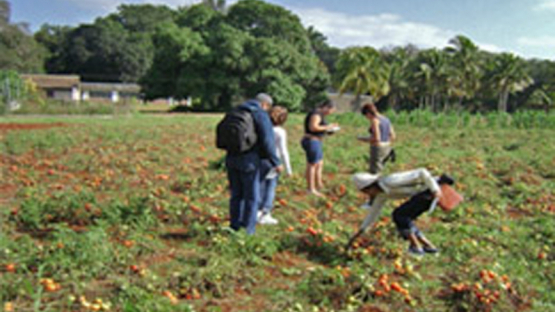Plant breeding highlights

Plant Mutation Breeding Enhance Crop Productivity and Food Security in Drought-Prone Environments in Namibia
Agriculture is a major contributor to the Namibian economy and is highly correlated to growth and development. The country has semi-arid and arid climatic condition regions and is one of the driest countries of Sub-Saharan Africa; consequently crop yields are severely limited by drought.

Sorghum Mutation Breeding for Improving Tolerance to Abiotic Stresses Brought About by Climate Change
The limiting factors for dryland agriculture development in Indonesia are mostly related to abiotic stresses i.e. drought problems in the eastern and soil acidity in the western part of the country.

World Wide Success in Mutation Breeding for Food Security - Achievement and Outstanding Achievement Awards
This year, the Joint FAO/IAEA Centre of Nuclear Techniques in Food and Agriculture is celebrating its 50th Anniversary.

Induction, Rapid Fixation and Retention of Mutations in Vegetatively Propagated Banana
Mutation discovery technologies have enabled the development of reverse genetics for many plant species and allowed sophisticated evaluation of the consequences of mutagenesis. Such methods are relatively straightforward for seed-propagated plants.

Responding to the Transboundary Threat of Wheat Black Stem Rust (Ug99)
Mutation activities target rust diseases with emphasis on Ug99 to contribute to an eventually broadened gene base for rust resistance. Mutant lines that have resistance to Ug99, once selected, will effectively counter the threat to global wheat and barley production, the menace of Ug99.

Improved Barley Varieties - Feeding People from the Equator to the Arctic
In the Andean highlands of Peru, native crops such as barley (Hordeum vulgare L.), quinoa (Chenopodium quinoa) and amaranth “kiwicha” (Amaranthus caudatus) are important food security crops for the 3 million people living there from subsistence agriculture.

Successful Mutation Breeding Programmes in Vietnam
Mutation breeding has become the most successful field of application of nuclear techniques in food and agriculture: more and more mutant crop varieties, especially in rice have been released to farmers and make great contributions to local and national food security.

Rice Mutation Breeding in China
Recent studies on Asian wild rice and land races of cultivars indicate that South Asia is most likely the main centre of origin of cultivated rice.

Transforming the Crop Production Landscape in Bangladesh: A High Yielding, Early Maturing Rice Mutant Variety is Beating the Monga Food Insecurity Phenomenon
As in most tropical and sub-tropical regions, in Bangladesh, there is a season called Monga (October and early November) during which crops are still maturing in the field but grain stock is dangerously limited in the monsoon season.

From the Lab to the Farm
Vietnam is a developing agricultural country having 73.5% of its population living in the rural area. Crop production plays an important role in national food security and the rural development of Vietnam.

Protecting Wheat Harvests from Destruction
Wheat stem rust (race Ug99), which was first identified in Uganda in 1999, is a new variety of an old crop disease called "stem rust".

Flowers Blooming - A Follow-up of a Previous TCP in Thailand, THA/5/045
In a pioneer project supported by the Departments of Technical Cooperation and Nuclear Sciences and Applications of the IAEA, mutant flowers that appealed to florists and growers produced were produced at Kasetsart University in Thailand, and thusly many new varieties were introduced into the market.

Improvement of Drought Tolerance in Chickpea through Induced Mutations
This project is under the umbrella of the Pakistan Atomic Energy Commission (PAEC) and hosted by the Nuclear Institute for Food and Agriculture (NIFA) in Peshawar (NWFP and FATA Provinces).

Tanzania: Enhancing Crop Productivity through Radiation Technology
The project aimed at developing improved varieties of basic crops such as rice, banana and barley through tissue culture, radiation-induced mutations and molecular techniques and enhancing the crop breeding capacity in Tanzania.

Juicy Tomatoes from Dry Cuban Soil
Having in mind the need to have tomato varieties growing under low water input conditions, not only to save this valuable liquid but also to diversify production in drought-affected areas, a tomato breeding programme using nuclear techniques was started with the purpose of obtaining adequate yielding-potential cultivars under drought conditions using the Cuban tomato varieties INCA 9-1 and Amalia.

Blossoming Ideas Creating Stronger Economies
In Thailand, a flower is more than an ornament; it is the country's symbol and the main source of income for thousands of families.

High Quality Mutant Rice Varieties Widely Grown in Viet Nam
Mutant rice variety VND95-20 with high quality and tolerance to salinity became the key rice variety for export in 2005 ( 28% of the one million ha export rice area in the Mekong Delta).

Indian Groundnut
Under IAEA/RCA Project RAS/5/40, in India, the total mutant series of TAG groundnut varieties (in the last 10 years, 10 varieties) has increasing success.

Hardy Crops in Harsh Environments
One of the success stories in the use of induced mutations by a national agricultural research system in collaboration with the Agency's Plant Breeding and Genetics programme: Peru.

